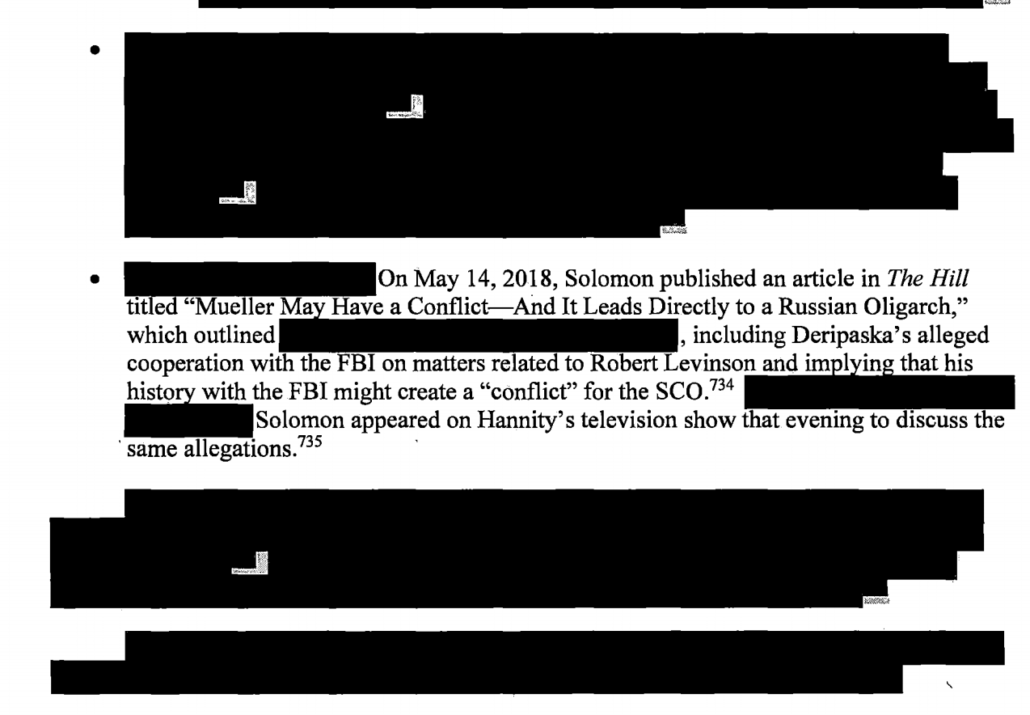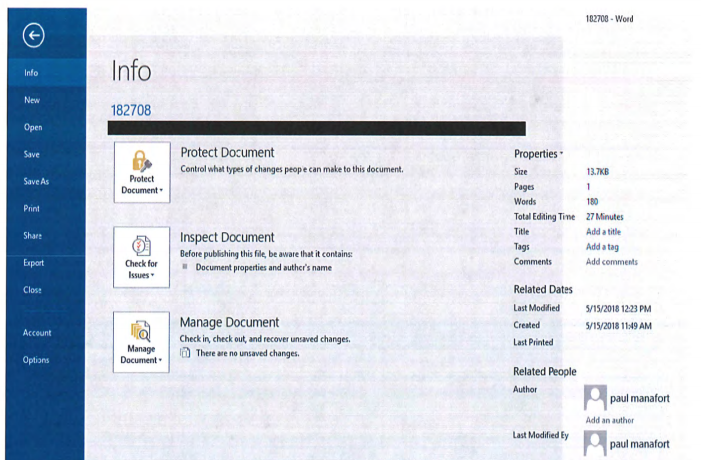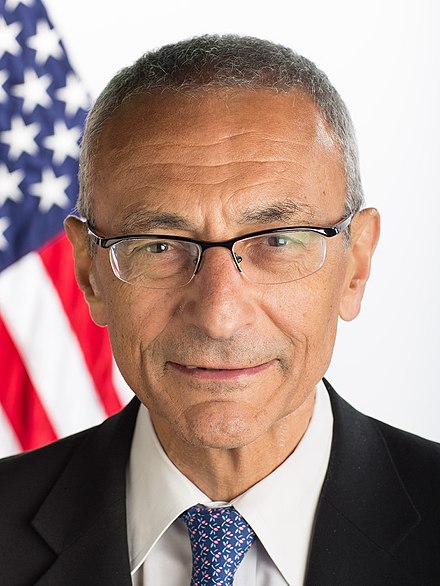It’s Not the Four Year Old Counterintelligence Investigation intro Trump We Need to Be Most Worried About — It’s the Ones Bill Barr May Have Killed
The other day, Mike Schmidt advertised a book by claiming that FBI never did any kind of counterintelligence investigation of Trump in parallel with the Mueller investigation. On Twitter, Andrew Weissmann debunked a key part (though not all) of that claim.
The aftermath has led to ongoing debates about what really happened. My guess is that Schmidt’s sources did not have visibility on the full scope of the Mueller investigation, and he didn’t read the Mueller Report, which would have helped him realize that. And while credible reports say Mueller didn’t investigate Trump’s historical financial ties to Russia (while I’ve read neither book yet, the excerpts of Jeff Toobin’s book adhere more closely to the public record than Schmidt’s), the public record also suggests Mueller obtained Trump-related records that most people don’t realize he obtained.
I reiterate that it is far more troubling that a co-equal branch of government — the one with impeachment power — chose not to pursue the same questions about Trump’s financial vulnerabilities to Russia. If you want to express outrage that no one has investigated whether Trump is beholden to Russia, focus some of it on Richard Burr, who suggested Trump’s financial vulnerability to Russia was irrelevant to a report specifically focused on counterintelligence threats.
Still, there’s something still more urgent, one that is getting lost in the debate about what happened three or four years ago.
There were, as of at least April, at least one and probably several investigations implicating counterintelligence tied to Trump, through his top associates. But they tie to the same cases that Billy Barr has undermined in systematic and unprecedented fashion in recent months. It is a far more pressing question whether Barr has undermined counterintelligence investigations implicating Trump’s ties to Russia by ensuring those who lied to protect him during the Mueller investigation face no consequences than what Rod Rosenstein did forty months ago.
Consider Mike Flynn. The most newsworthy thing Robert Mueller said — under oath — over the course of two congressional hearings is that “many elements of the FBI” were looking into the counterintelligence risks created by Mike Flynn’s lies about his communications with Russia.
KRISHNAMOORTHI: Since it was outside the purview of your investigation your report did not address how Flynn’s false statements could pose a national security risk because the Russians knew the falsity of those statements, right?
MUELLER: I cannot get in to that, mainly because there are many elements of the FBI that are looking at different aspects of that issue.
KRISHNAMOORTHI: Currently?
MUELLER: Currently.
As part of Mueller’s analysis about whether Trump fired Jim Comey to stop the investigation into Flynn, he weighed whether the Flynn investigation implicated Trump personally. But he found — largely because Flynn and KT McFarland, after first telling similar lies to investigators, later professed no memory that Trump was in the loop regarding Flynn’s efforts to undercut sanctions with Sergey Kislyak, and Steve Bannon repeated a White House script saying he wasn’t — that the evidence was inconclusive.
As part of our investigation, we examined whether the President had a personal stake in the outcome of an investigation into Flynn-for example, whether the President was aware of Flynn’s communications with Kislyak close in time to when they occurred, such that the President knew that Flynn had lied to senior White House officials and that those lies had been passed on to the public. Some evidence suggests that the President knew about the existence and content of Flynn’s calls when they occurred, but the evidence is inconclusive and could not be relied upon to establish the President’s knowledge.
[snip]
But McFarland did not recall providing the President-Elect with Flynn’s read-out of his calls with Kislyak, and Flynn does not have a specific recollection of telling the President-Elect directly about the calls. Bannon also said he did not recall hearing about the calls from Flynn. And in February 2017, the President asked Flynn what was discussed on the calls and whether he had lied to the Vice President, suggesting that he did not already know. Our investigation accordingly did not produce evidence that established that the President knew about Flynn’s discussions of sanctions before the Department of Justice notified the White House of those discussions in late January 2017.
We’ve since seen transcripts that show Mike Flynn telling Sergey Kislyak in real time that Trump was aware of the communications between the two (and John Ratcliffe is withholding at least one transcript of a call between the men).
FLYNN: and, you know, we are not going to agree on everything, you know that, but, but I think that we have a lot of things in common. A lot. And we have to figure out how, how to achieve those things, you know and, and be smart about it and, uh, uh, keep the temperature down globally, as well as not just, you know, here, here in the United States and also over in, in Russia.
KISLYAK: yeah.
FLYNN: But globally l want to keep the temperature down and we can do this ifwe are smart about it.
KISLYAK: You’re absolutely right.
FLYNN: I haven’t gotten, I haven’t gotten a, uh, confirmation on the, on the, uh, secure VTC yet, but the, but the boss is aware and so please convey that. [my emphasis]
Certainly, Russia would have reason to believe that Flynn’s efforts to undermine sanctions were directed by Trump.
In January, a sentencing memo that was delayed so it could be approved by the entire chain of command at DOJ, explained why all this was significant.
Any effort to undermine the recently imposed sanctions, which were enacted to punish the Russian government for interfering in the 2016 election, could have been evidence of links or coordination between the Trump Campaign and Russia. Accordingly, determining the extent of the defendant’s actions, why the defendant took such actions, and at whose direction he took those actions, were critical to the FBI’s counterintelligence investigation.
[snip]
It was material to the FBI’s counterintelligence investigation to know the full extent of the defendant’s communications with the Russian Ambassador, and why he lied to the FBI about those communications.
Flynn’s forgetfulness about whether Trump ordered him to undermine sanctions went to the core question of whether Trump worked with Russia in their efforts to throw him the election.
And that sentencing memo was the moment when Billy Barr threw two different lawyers — one a lifetime associate of his — into the project of creating a false excuse to undermine the prosecution of Flynn. More recently, Acting Solicitor General Jeffrey Wall told the DC Circuit that Barr had secret reasons for overturning the prosecution.
The Attorney General of course sees this in a context of non-public information from other investigations.
[snip]
I just want to make clear that it may be possible that the Attorney General had before him information that he was not able to share with the court and so what we put in front of the court were the reasons that we could, but it may not be the whole picture available to the Executive Branch.
[snip]
It’s just we gave three reasons; one of them was that the interests of justice were not longer served, in the Attorney General’s judgment, by the prosecution. The Attorney General made that decision, or that judgment, on the basis of lots of information, some of it is public and fleshed out in the motion, some of it is not.
This secret reason is why, Wall suggested, it would cause irreparable harm for DOJ to have to show up before Judge Emmet Sullivan and explain why DOJ blew up the prosecution.
Then there’s Roger Stone. Stone very loudly claimed (improbably) that he could have avoided prison had he not lied to protect Donald Trump. And Trump rewarded him for it, commuting his sentence to ensure he didn’t spend a day in prison.
But at least as of April, an investigation into whether Stone was part of a conspiracy with Russia and/or was a Russian agent — implicating 18 USC 951, not just FARA — was ongoing. Among the things Stone was involved in that Trump refused to answer Mueller questions about was a pardon for Julian Assange, one Stone started pursuing at least as early as November 15. While no sentencing memo has explained this (as it did with Mike Flynn), whether Trump and Stone used promises of a pardon to get Assange to optimize the WikiLeaks releases goes to the core question of whether there was a quid pro quo as part of 2016.
Finally, there’s Paul Manafort, whose close associates, the SSCI Report makes clear, were part of GRU and appear to have had a role in the hack-and-leak. After securing a cooperation deal, Manafort changed his story, and then shared details of what Mueller’s team knew with the President.
Yet, even with Manafort’s ties to the effort to steal our election, the Attorney General used COVID relief to ensure that Manafort would escape prison.
While it’s not clear whether John Ratcliffe, Barr, or the IC made the decision, the redaction process of the SSCI report denied voters the ability to know how closely tied Trump’s campaign manager is with the people who helped steal the election. What we do know is the effort Manafort started continues in Trump’s efforts to extort Ukraine and spew Russian disinformation.
For all three of the Trump associates where we know Barr intervened (there’s good reason to suspect he intervened in an Erik Prince prosecution, too), those people implicate Trump directly in counterintelligence investigations that were, fairly recently, ongoing.
Whether or not there was a counterintelligence investigation implicating Trump on May 20, 2017, after Rod Rosenstein scoped the Mueller investigation, we know counterintelligence investigations have implicated him since. What we don’t know is whether, in an effort to help Trump get reelected, his fixer Billy Barr squelched those, too.
Update: In an appearance for his book, Schmidt said he considered writing it (in 2020) about just the first 26 days of his presidency. It’s a telling comment given that his description of what happened with counterintelligence doesn’t accord with what the Mueller Report itself said happened around 500 days into Trump’s presidency.












